Veran Matic co-founded Serbia’s independent news outlet B92 in 1989, ahead of the 1990s Balkan Wars. He also chairs the Commission for Investigating Killings of Journalists in Sebia, established in 2013 on his initiative, and leads the B92 Fund, which is engaged in social and humanitarian activities. Over the span of three decades, he has received numerous prestigious awards for his work, and the International Press Institute selected him as one of the 50 World Press Freedom Heroes for the period after World War II.
At a time when people reporting on Iran are witnessing atrocities on a daily basis and are putting their lives at risk to cover the ongoing wave of nationwide protests, IranWire’s Marija Milosavljevic asked this uncompromising fighter for media freedom about the work of journalists during troubled times.
From your experience as the head of a media outlet during very turbulent times, what do you think journalists can do to protect their mental wellbeing while covering atrocities?
In my experience, it is very important that journalists, editors and everybody working in a media outlet or association have very clear beliefs when it comes to their profession – about journalistic goals, what their job is -- and to have very clearly developed beliefs about the events they cover and about the standards of civilised, humanistic behaviour. Because that is the first system of defence from what they will witness and report.
And when they are in a situation where they cover a very distressing scene it is very important that a humanistic attitude to the situation is at the front of their minds. If you can help, you should help before using the opportunity to get footage and post it. There is always time to report in the correct way, and empathy is a crucial part of our jobs, as it helps us gain the best understanding possible of what we’re covering, amongst other.
Second, it is always incredibly important to always bear in mind that it is always important to report evil, breaches of basic human rights, attacks on life and freedoms – it is crucial that the public is appraised of these. Often, the public can be the only mechanism for the protection of the victims and your own protection. While things are happening off the public scene, and if facts are learned only several years later, then the opportunity to do one’s job professionally is missed.
It’s possible to report in the most professional way about even the most difficult situation, and the unity within the media outlet which you work for is very important so that every journalist has a sense of really strong support to their work by their management and editors, and that what they produce will be published and used in the best possible way.
What are the mechanisms to protect the safety of journalists and their families, while continuing to report professionally despite pressure?
I have always found it most important to protect the life and physical safety of journalists. We’ve never had a situation where our journalists suffered huge physical damage even though we’ve often found ourselves at the epicentre of often violent protests, and we’ve taken various forms of training – some of them formal, others informal. We used the opportunity to gain advice from international correspondents who went through very good programmes by the BBC or Sky or some other American media before being sent to war zones, so we ’stole’ some of the ideas.
As someone who presents certain kind of news, it’s very important to take care of everyone in the chain: from the source of information, to the one who passed the information on, to the one who will broadcast the information – so as to protect everyone at the same time as delivering on public interest.
When there is a chance that someone in that chain will be in jeopardy, I think the operation should be halted until it’s secured that no one in the chain will come to harm. It’s also very important to provide support to each of the links in the chain – a systematic kind of support wherever that’s possible. That is why we had, for example, a fine network of lawyers in many small towns in Serbia who could very quickly provide some sort of legal support on the spot. We also had funds to support anyone who needed to take cover. When we talk about people being abroad, sometimes they are even more endangered as they often can’t tell where a threat is coming from, and it is very important that protection mechanisms are put in place such as safe houses where people can take shelter and live for a while, under some additional security. Everything can be overcome. We know that security services can breach all defence mechanisms, and so it is very important to achieve the highest possible level of security for all actors in this story. (…)
Another thing that is very important is the possibility to bring on board and unite additional forces from the international organisations that engage in the protection of freedom and media development, and that is something that requires a lot of work. We had to build trust over a long period, and it took us a long time to get to situations where we could build a system of transmitters around the country so we could avoid our transmitters in the country being impounded. That was both an expensive and large operation, which took a long time to plan, but it helped us a lot exactly because we found a mechanism to be outside of the reach of direct and express bans, and to amplify our work. There are a series of examples that should be used and studied in order to find a combination of responses to the challenges the journalists covering Iran today have to face.
You have been exposed to extreme levels of stress, and even lived for over a decade under police protection. What helped you stay healthy mentally and physically?
Danger is my middle name. [Laughs] I’ve been professionally active for 40 years now. Of those, 37 years have been in journalism and through very challenging times and topics. And somehow, that’s become my natural environment. That ‘natural environment’ of danger lasted for quite a long time, around 20 years in the role of someone leading a media outlet that was banned four times and through very difficult situations.
I don’t think there is some universal recipe. For us, it was very challenging because all the situations we found ourselves in were completely new: one war begins, then another, then a third…you live in an environment like that and it’s very important to develop a media environment so that what you’re doing is protected.
The safety of others around me has been really important to me and for my psychological wellbeing amongst others. When I know that we’ve done everything to have maximum protection and when I know that we’re offering the best possible advice to people, or recommendations or opportunities, that is something that provides you with a certain balance, which regulates that which pressurises you psychologically or in other ways.
I aways aimed to have some sort of a balance: to have a counterbalance in some other area regardless of what we faced. Sometimes, that balance was exactly in the commitment to wreak as much damage on the enemy, [which brings] a certain kind of pleasure. We had the strategy that after each ban we had to return doubly as strong as before. We all worked towards that and that is a good propeller force. Whenever that’s possible…I know that it’s not possible in many situations but again taking the psychological perspective, we were always pro-active, not reactive – you don’t weather repression with a goal to save the bare life but even before repression comes, we strategized about what forms of repressions were possible and what could responses to the repression be. And we had solutions ready. (…)
Certainly the most difficult times were those when your movement is restricted, when your freedom is curbed and paradoxically, regardless of the fact that you’re living under police protection, you are in effect imprisoned. For me that was the biggest problem as you have to change your life completely to adjust to the new circumstances and be very disciplined in that, if you want the protection to work. Unfortunately, those are lost years in the sense of family life and friendships, as automatically you leave communication you think can be complicated in a situation where two policemen accompany you or even more than two of them, as has happened on some occasions.
And that is the price each of us pays.
One of the ways I’ve found to keep healthy has been to exercise regularly and go to the gym. I think that’s something everyone should do, but it really helped me as a journalist and a media manager (…)
What also helps me is humanitarian work. From back when I started in journalism, a part of my daily activity -- both professional and beyond -- has been to help other people who have different problems, and that returns me to the story of balance. That creates a kind of balance to what you’re experiencing yourself as stress or illness. I lead a foundation which runs many humanitarian and social programs. I think that in our cultures and religions such balance is very important. When I experience success, I aim the same day to do something for others – donate blood if nothing else. That means to me psychologically as much as it means to the person who needs the transfusion. (…)
In the context of Iran, it is very important to engage as much solidarity as possible, constructive solidarity on a global level. I have to admit that there is less and less of it, and that the organisations that were supporting us during the 1990s for example, it seems to me that they were much more active and much easier to engage in providing larger scale support than is the case today. I think I notice a weakening of the organisations of that type, and that’s why it’s important to gather all who can help in their area of expertise. I would be happy to support in any way I can.
Parallels between Balkans unrests and Iranian unrests…
During the [NATO] bombing [of Serbia in 1999] in a situation where you have all international powers against your country, there appeared a small movement of mothers of soldiers in central Serbia, which wasn’t mass at all – it was totally authentic. It sprang from the care for their children exposed to the bombs falling out of the sky. It was an unexpected turn in a situation where you have opposition parties and movement, and so on, where such cases can become much stronger in the daily articulation of anger and dissatisfaction with the regime than any political concept or any political party.
We endeavoured to unite as many of those authentic protests. We called them irrelevant heroes – those who suddenly, without any prior experience of activism, decided to become activists and resist, leading a column of perhaps 20 people, and then 100… They were all linked to some interest, a very recognisable interest to their environment and other citizens.
That’s why I believe that the current movement is very important in a civilizational sense, when we talk about resistance in general, and of experiences of resistance in Iran up until now. Because it is vitally important, vitally recognised, it’s universal and it touches many layers of life in Iran today – the whole world can identify with it without that being because the world is against a certain authority. It is emancipatory; it is a project for and not against. It is certainly against restrictions, but more than that it is for certain values, which are widely recognized, very universal, very humane, civilizational. That is why I think this is the path within which as many individual groups should be supported and made sure that they have as reliable infrastructure as possible for their voice to be heard, as their authenticity has demonstrated that one mobile phone that records a situation can bring the whole world on their feet.
I can say that I suffer greatly with this civilization that carries with it the history of the world. You could say it’s the bellybutton of the world. It is a wonderful people experiencing repression such as absolutely nobody deserves. If nothing else, I would like to verbally support all those who are fighting for freedom in Iran and to offer support to those in a similar profession to mine to support them by sharing my experience.
visit the accountability section
In this section of Iran Wire, you can contact the officials and launch your campaign for various problems





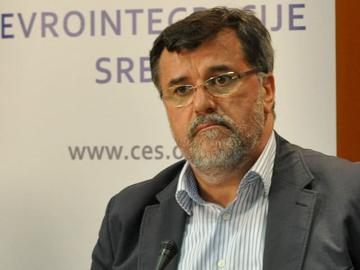




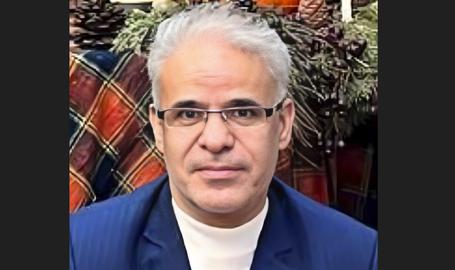
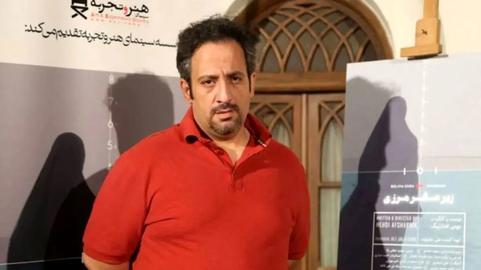

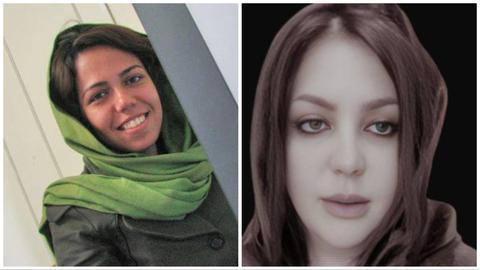
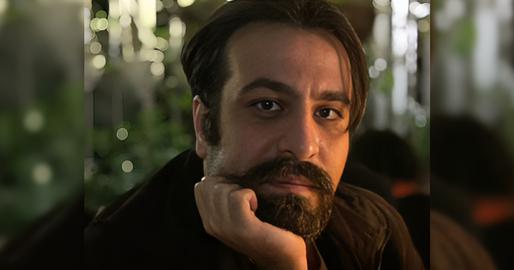


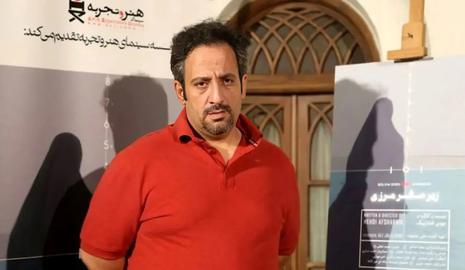
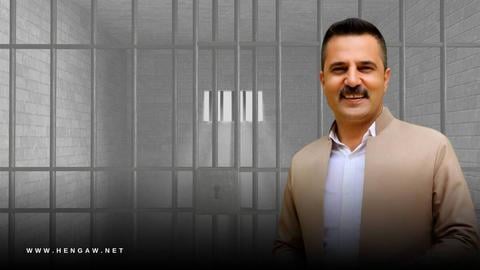
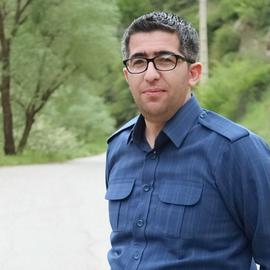


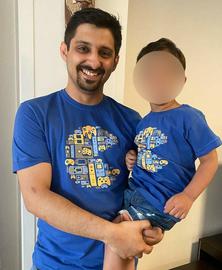
comments